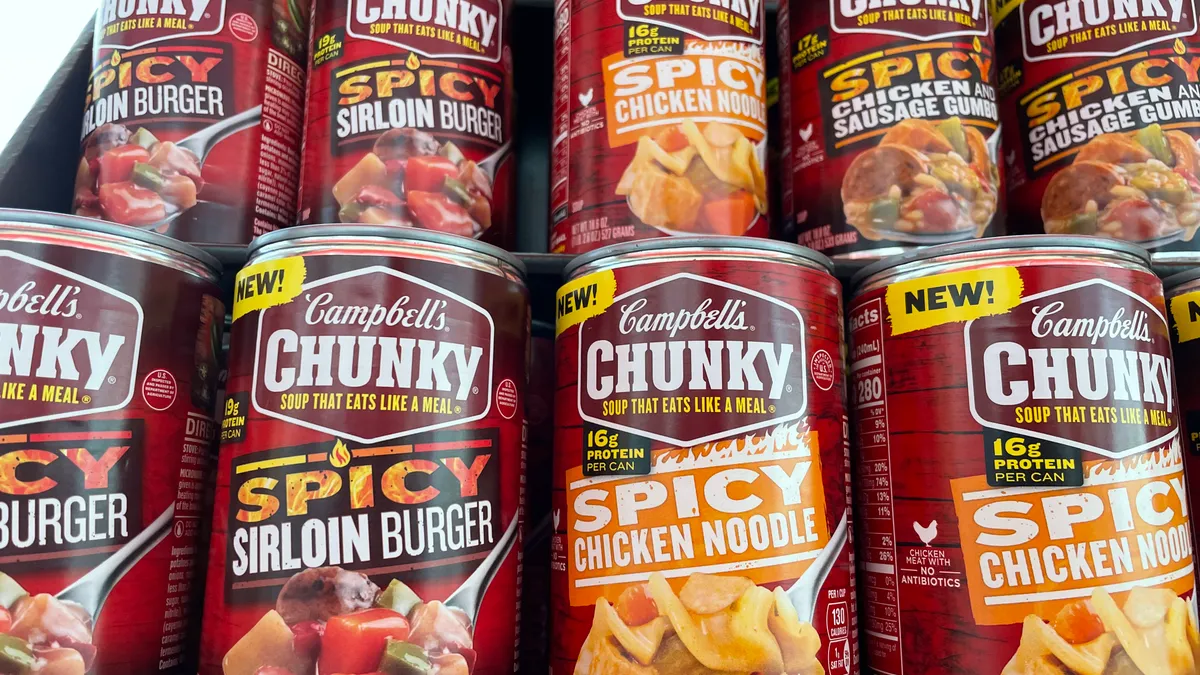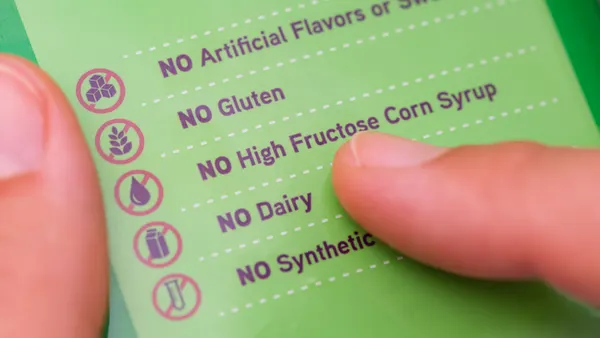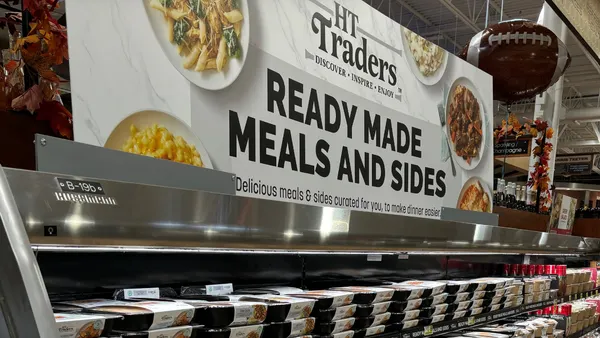Dive Brief:
- The 50% tariff on imported steel levied by the Trump administration could increase canned food prices between 9% and 15%, according to the Consumer Brands Association.
- The trade group estimated up to 20,000 U.S. food manufacturing jobs could be at risk if tariffs cause consumers to curtail their purchases of higher-priced canned goods and CPG companies opt to switch away from tin-plate steel to cheaper packaging alternatives.
- The steel tariffs are impacting a slew of products in the food space, including sauces, seafood, soup and vegetables.
Dive Insight:
As the White House doubles tariffs on steel and aluminum, CBA moved quickly to underscore the negative impacts they could have on manufacturing and consumer shopping habits.
The CBA, whose members include Coca-Cola, The Campbell’s Company and Del Monte Foods, noted that while the majority of ingredients and inputs are sourced from the U.S., there are exceptions.
A major one is tin mill steel. Domestic can makers and canned food producers import nearly 80% of the material from foreign trade partners, Robert Budway, president of the Can Manufacturers Institute, said last week.
Conagra Brands CEO Sean Connolly said in April that his company has “no choice” but to import the majority of its canned food packaging, estimating about 75% of the tin plate steel lines in the U.S. have been eliminated since 2018. CFO David Marberger said last week that the Hunt’s tomato and Wendy’s canned chili maker was working through how it will “mitigate” the higher cost for the material on its business.
“Unfortunately, the domestic steel industry does not produce tin mill steel in the quality or quantities needed by U.S. can makers,” Tom Madrecki, vice president of supply chain resiliency at CBA, said in a statement. “The Trump administration should fine tune its approach to recognize supply chain dependencies and protect all U.S. manufacturers, workers and consumers.”
A handful of other food and beverage manufacturers have warned that tariffs will impact their operations.
Campbell’s, which imports tinplate steel for cans and canola oil for chips, noted trade headwinds could cut into its fiscal-year earnings by 3 cents to 5 cents a share. Coca-Cola said in February that the Sprite and Dasani maker may shift some products sold in aluminum cans to PET bottles if input costs rise in light of new tariffs.














